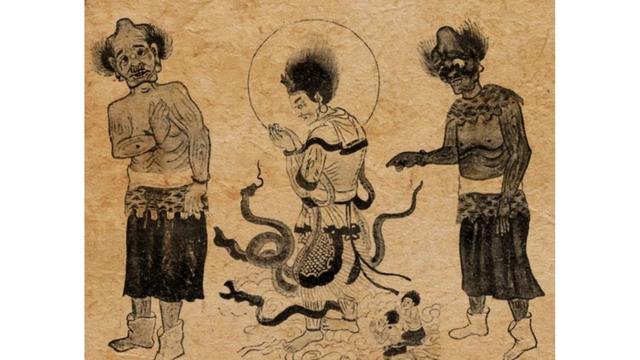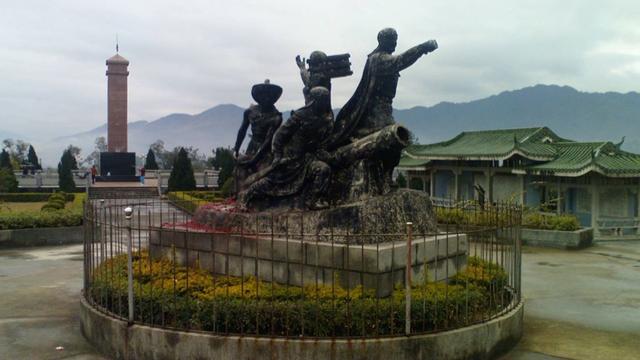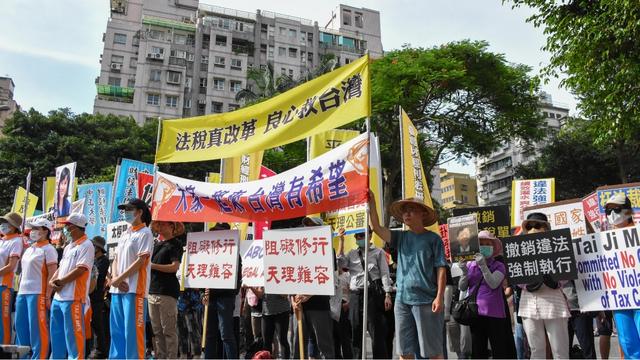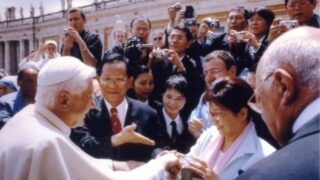Tai Ji Men was accused of being a “cult” or a “religious fraud.” These labels do not mean anything and are used as tools to discriminate and persecute.
by Jeff Kuo*
**An in-session response to the paper presented by Massimo Introvigne in the session “‘Cults’: The International Return of a Dubious Category,” at the 83rd Annual Meeting of the Association for the Sociology of Religion, Los Angeles, August 7, 2022.


The purpose of my response is to offer some comments on Massimo Introvigne’s exploration of the Chinese expression “xie jiao.” I am a business manager, and I understand the reason I have been asked to comment on this session is that I am a Tai Ji Men dizi (disciple) and I am familiar with the situation in Taiwan.
Introvigne’s paper focused on the meaning and history of “xie jiao” (邪教). He mentioned that, although in Chinese official documents it is translated as “cult” or “evil cult,” in fact this translation is not entirely accurate. It can also be anachronistic, as the controversy on “cults” is comparatively recent, while in China the expression “xie jiao” appeared in the seventh century of the Common Era.
Introvigne noted how “xie jiao” was used throughout Chinese history to designate and persecute religious movements that had two features: they were accused of rebellion, or at least of not offering to the government a support that was regarded as mandatory, and of using black magic.
Based on my own experience, I would like to offer some comments on another feature of “xie jiao” shortly mentioned in Introvigne’s paper. This is that the label was always used somewhat capriciously. Similar movements were called or not called “xie jiao” based on the changing feelings of the authorities and on political reasons. This is not surprising if we consider the political function the label always had.
This is still true today. For example in Imperial China the movement responsible for the Taiping rebellion (太平天國之亂) was regarded as the quintessential “xie jiao.” Today, it would easily be called a “cult” by those using the word “cult” in the sense described in this session. Its founder proclaimed himself the younger brother of Jesus Christ and took eighty-eight wives, who reportedly were asked to always smile and were beheaded if they didn’t.
Yet in both republican China and the present People’s Republic the Taiping were presented not as a “xie jiao” but as an honorable nationalist and revolutionary movement. This is based on interpretations by Sun Yat-Sen, the first President of the Republic of China, and Mao Zedong. Mao also relied on a text of Karl Marx praising the Taiping, although he either ignored or dismissed that in a later article Marx stated he had changed his mind and now regarded the Taiping as an evil organization.


Why is a group such as the Taiping called honorable while other religious movements in Chinese history are labeled as “xie jiao” or “cults”? The short answer is that there is no answer. What I mean is that there is no answer based on criteria a scholar of religion can recognize and understand. The real answers are in politics. Creating the myth of the Taiping as a proto-revolutionary movement was deemed useful by both the Kuomintang and the Chinese Communist Party for political or propaganda purposes. Demonizing other religious revolutionary movements in Chinese history as “xie jiao” was also regarded as useful by both parties to justify their own repression of religious and spiritual minorities.
Why was Tai Ji Men labeled a “xie jiao” in 1996? Why was a campaign started against it? Why did the Tai Ji Men case start?
Again, we may never find an answer if we merely look at the features of Tai Ji Men as a spiritual movement. Although it offers teachings its dizi regard as uniquely valuable, from the point of view of its organization and structure Tai Ji Men is not different from countless other martial arts, qigong, and self-cultivation schools in Taiwan. Yet in 1996 Tai Ji Men was persecuted and other groups were not. The same is true for Buddhist orders. Some were among the victims of the 1996 crackdown. Others, with similar structures and ways of functioning, were not affected.


This also applies to the tax question that is crucial in the Tai Ji Men case. Giving gifts to spiritual or martial arts masters in the red envelopes is part of a practice very common in the Chinese world and in Taiwan. Yet, in hundred of other cases these were regarded as non-taxable gifts as a matter of course. Only in the case of Tai Ji Men the National Taxation Office claimed they were not gifts at all, but taxable tuition fees, which they were not.
The prosecutor who started the Tai Ji Men case and the tax bureaucrats told the media that Tai Ji Men was different from other qigong and martial arts groups because it was based on “religious fraud.” But this label did not mean anything, just as “cult,” as it was recognized by courts of law up to Taiwan’s Supreme Court that declared Tai Ji Men defendants innocent of all charges.
We are left with the conclusion that labels such as “cults,” “xie jiao,” “religious frauds” have no intrinsic meaning. They are empty boxes filled with a changing content by the powers that be when they need to crack down on a spiritual (or any other) group for political reasons. Denouncing the ambiguous and dangerous role of these labels is a worthy result of the academic study of new religious movements.









